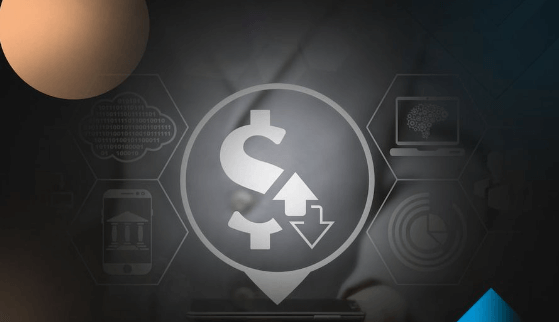In today’s changing world of healthcare, using technology to streamline processes and boost efficiency has become increasingly important. One particular innovation that has gained popularity is the employment of scribes. These professionals support healthcare providers by recording interactions in time during medical exams, typically working from offsite locations or even their own homes. This piece explores the advantages of selecting a medical scribe and how they can create a more effective, focused, patient-centered healthcare setting.
Boosting Provider Productivity
A key factor driving healthcare providers to choose scribes is the significant improvement in operational efficiency. Recording patient interactions is a time-consuming task that often takes attention away from care. By delegating documentation duties to scribes, healthcare providers can see more patients within a set timeframe, enhancing overall practice productivity. Additionally, remote scribes ensure that medical records are updated accurately and promptly, which is crucial for delivering thorough patient care.
Enhanced Focus on Patient Engagement
Having a medical scribe remote enables healthcare providers to concentrate fully on interacting with their patients without the distraction of note-taking. Undivided attention fosters improved communication, strengthens the bond between patients and healthcare providers, and results in assessments and personalized treatment. Patients feel more appreciated and listened to when their healthcare providers are attentive and engaged during appointments, ultimately leading to higher patient satisfaction and better treatment plan adherence.
Cost Effective Solution
Utilizing a scribe can offer a cost-effective option for healthcare practices. Conventional in-person scribes often include expenses like workspace, equipment, and other administrative costs. Remote scribes, however, eliminate these expenses as they work from locations. This cost reduction can be especially advantageous for practices or those within financial constraints. Moreover, hiring scribes allows access to a talent pool, enabling practices to choose the most skilled and experienced professionals regardless of location.
Read also: Revolutionize Your Tech Game with Tha Techno Tricks.com
Accurate and Thorough Documentation
Remote medical scribes are experts trained in terminology and documentation. They ensure that all patient interactions are accurately recorded and detailed, which is essential for maintaining top-notch records. Precise documentation not only aids in providing patient care but also plays a critical role in meeting regulatory standards and mitigating legal risks.
Keeping precise records is crucial for audits, insurance claims, and collaboration with healthcare providers. Addressing Provider Burnout Provider burnout is a problem in the healthcare sector mainly caused by the administrative responsibilities placed on healthcare professionals. Remote medical scribes can significantly reduce this burden by managing most documentation tasks. By lessening the workload, providers can achieve a work-life balance, decreasing stress and burnout. As a result, healthcare professionals can maintain enthusiasm for their work, resulting in patient care and job satisfaction. Flexibility and Scalability Remote medical scribe services offer flexibility and scalability, making them an excellent choice for practices of all sizes and specializations. Whether a clinic deals with patient volumes or operates in an area, remote scribes can adapt to meet the practice’s specific needs. Moreover, as practices expand or face fluctuations in numbers throughout the year, they can adjust their use of scribes accordingly to maintain efficiency while offering flexibility.
Enhanced Data Security Patient confidentiality and record safeguarding are priorities in healthcare settings. Remote medical scribe companies typically implement security measures to ensure patient information remains confidential and secure. Cutting-edge encryption technologies, secure access protocols, and routine audits are implemented to safeguard data. By utilizing these security measures, healthcare providers can gain confidence in protecting information while enjoying the advantages of remote scribe services.
Access to Varied Expertise
Utilizing remote medical scribes grants access to professionals with skills and specialized knowledge. This diversity can be especially beneficial for practices that serve patients with uncommon conditions. Remote scribes trained in different fields can assist in documenting complex cases, ensuring the thorough and accurate capture of all pertinent information.
Streamlined Workflow
Integrating remote medical scribes into the healthcare delivery system can result in workflows. By assigning documentation responsibilities to scribes, healthcare providers can focus on tasks, allowing administrative staff to concentrate on other vital functions. This clear division of roles enhances the efficiency of practice operations, promotes processes, and improves resource management.
Improved Training and Protocol Adherence
Remote medical scribes typically possess documentation protocols and health record (EHR) systems expertise. Their knowledge guarantees that patient interactions are documented according to established protocols and guidelines. Consistent documentation practices enhance the standardization and quality of records throughout the practice.
Moreover, remote scribe companies often offer training and professional development opportunities for their scribes to ensure they stay up-to-date with the best practices in medical documentation.
Convenience and Flexibility
Scribes’ convenience and flexibility make them an attractive choice for many healthcare providers. They can be scheduled to work in time zones, assisting during or after regular office hours. This flexibility guarantees that healthcare providers receive documentation support during busy periods or emergencies. Additionally, integrating scribes into telemedicine services further enhances healthcare delivery capabilities.
In Conclusion
Employing a remote medical scribe offers advantages that significantly enhance healthcare services’ efficiency, accuracy—including precise medical record data entry—and quality. By easing the documentation workload, remote scribes allow healthcare providers to dedicate more time and focus on care, improving patient outcomes and satisfaction. Their cost-effectiveness, adaptability, and access to expertise make them a valuable asset for any healthcare practice. Embracing medical scribe services as part of the evolving healthcare industry is a step towards achieving a more efficient, patient-centered, and technologically advanced healthcare system.



